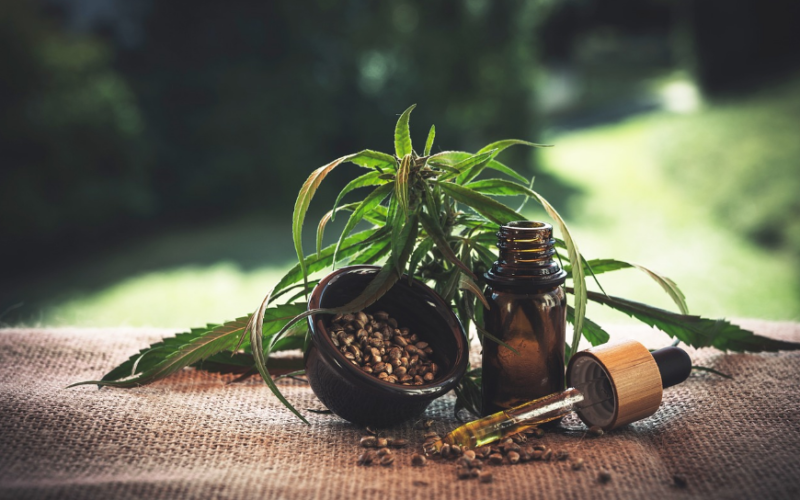The legal landscape of CBD, or cannabidiol, is complex and constantly evolving, influenced by a myriad of factors including federal and state regulations, international laws, and varying interpretations of these rules. Understanding the legal status of CBD is crucial for consumers, producers, and businesses involved in the CBD industry. CBD is one of over a hundred cannabinoids found in the cannabis plant, which includes both marijuana and hemp varieties. The distinction between these two plants is significant in the legal context, primarily due to their different levels of tetrahydrocannabinol (THC), the psychoactive compound responsible for the high associated with marijuana.
The 2018 Farm Bill marked a significant turning point for the legal status of CBD in the United States. This legislation legalized the production and sale of hemp-derived products, including CBD, as long as the hemp contains no more than 0.3% THC. This effectively removed hemp from the list of controlled substances and distinguished it from marijuana, which remains federally illegal. However, the Farm Bill also granted individual states the authority to regulate hemp production and CBD products within their borders, leading to a patchwork of state laws that can vary widely.
Despite the federal legalization of hemp-derived CBD, the Food and Drug Administration (FDA) has maintained regulatory oversight over CBD products, particularly those intended for consumption. The FDA has approved only one CBD-based drug, Epidiolex, for the treatment of certain severe forms of epilepsy. The agency has expressed concerns about the safety and efficacy of other CBD products, particularly those marketed as dietary supplements or food additives. As a result, the FDA has issued warning letters to companies making unsubstantiated health claims about their CBD products. This has created a legal gray area where many CBD products are available for purchase, but their legality and safety are not fully endorsed by the federal government.
State laws further complicate the legal landscape of CBD. Some states have embraced the federal guidelines and have enacted their own regulations to facilitate the production and sale of CBD products. For example, states like Colorado and Oregon have well-established hemp industries and robust regulatory frameworks for CBD. Conversely, other states have stricter regulations or outright bans on certain CBD products. For instance, in Idaho, CBD products must contain no THC to be legally sold, which is more restrictive than the federal limit. These variations can create confusion for consumers and businesses operating across state lines.
Internationally, the legal status of CBD varies significantly from country to country. In the European Union, CBD is generally legal if it is derived from hemp with less than 0.2% THC, but member states have their own regulations. Some countries, like the United Kingdom, have specific licensing requirements for CBD products, while others have more lenient approaches. In Canada, CBD is legal and regulated under the Cannabis Act, which also governs the production and sale of marijuana. In contrast, countries like Japan have stringent regulations that prohibit the sale of CBD products containing any trace of THC.
The legal landscape is also shaped by ongoing scientific research and evolving public perceptions of CBD. As more studies are conducted on the potential health benefits and risks of CBD, regulatory agencies may update their guidelines and policies. Public opinion has generally become more favorable towards CBD, especially as it is distinguished from marijuana and its psychoactive effects. This shift in perception has led to increased demand for CBD products and greater interest from investors and businesses looking to enter the market.
One of the significant challenges in the legal landscape of CBD is the lack of standardized testing and labeling requirements. Without consistent regulations, consumers may encounter products with varying levels of CBD and potential contaminants. Some states have implemented testing and labeling requirements to ensure product safety and transparency, but these standards are not uniform across the country. The inconsistency can lead to consumer mistrust and legal complications for businesses trying to comply with different state laws.
Another factor influencing the legal landscape is the intersection of CBD with other industries, such as food and beverage, cosmetics, and wellness. The incorporation of CBD into various products has sparked interest from large companies and entrepreneurs alike. However, the FDA’s stance on CBD as a food additive or dietary supplement has hindered widespread adoption in some sectors. Cosmetic products containing CBD face fewer regulatory hurdles, but companies must still navigate complex labeling and marketing rules to avoid making unapproved health claims.
The legal landscape of CBD is further complicated by law enforcement and legal interpretations at the local level. Some jurisdictions have taken a strict approach to enforcing CBD laws, leading to raids and seizures of products that are federally legal but may not comply with local regulations. This has created a climate of uncertainty for retailers and consumers, who may be unsure of the legality of their purchases.
In summary, the legal landscape of CBD is a dynamic and multifaceted field influenced by federal and state regulations, international laws, scientific research, public perception, and industry practices. While the 2018 Farm Bill legalized hemp-derived CBD at the federal level, the FDA’s regulatory stance and varying state laws create a complex environment for the production, sale, and consumption of CBD products. Internationally, the legal status of CBD varies widely, adding another layer of complexity for global businesses and consumers. As scientific research and public opinion continue to evolve, the legal framework for CBD is likely to undergo further changes, necessitating ongoing attention from all stakeholders involved in the CBD industry.
